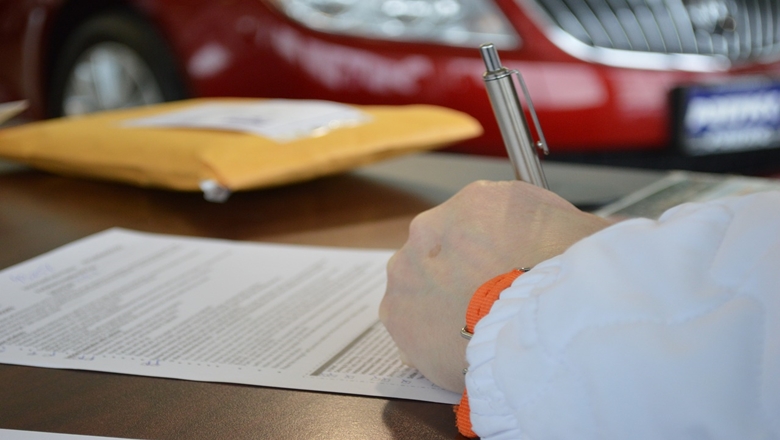Unfortunately, many lower income consumers lack any type of savings or reserve to address an unforeseen expense or temporary reduction in come. An auto repair of $400 can be an intimidating obstacle to someone who does not have any money set aside, or available credit from a credit card, with which to pay for the repairs. And without reliable transportation to get to work, the financial burden can quickly escalate. Payday loans and title pawns are specifically directed to this group of borrowers – those who are desperate and have no other traditional option for managing a sudden expense.
Because of the way the loans are set up, they are not subject to the traditional state restrictions on interest rates, and often will have an APR of between 138-400%. While these loans are marketed as a short term fix for a sudden budget deficit, they often turn into an endless cycle of payment and loan renewal, with the lender being paid many times over the amount that was originally borrowed. In order for the loans to be profitable for the lender, they need to be renewed or redeemed multiple times. Inevitably the borrower will quickly spiral downwards into increasing indebtedness, by obtaining new payday loans or title pawns from different lenders to pay off the previous loans. The loans will usually be profitable even if the borrower eventually files for bankruptcy and discharges the debt, due to the fact that it was renewed so many times. Payday loans will also require that the borrower consent to the payment being drafted directly out of the borrower’s bank account, which means that the borrower can’t defer the payment while another more pressing obligation is paid, like rent or car insurance.
There are several ways that consumers can avoid the high-interest trap of short-term loans. First of all, consumers should take a long and hard look at their credit. If your budget shortfall is due to making payments on old debts, such as medical bills and collection accounts, then filing a Chapter 7 bankruptcy may be a good option. By eliminating the old debts, the consumer is able to free up income than can be used for an emergency car repair in the future. Additionally, the consumer is eliminating the risk of lawsuits and garnishments on the old debts, which may have been one of the reasons for the denial of credit from traditional lenders.
If the consumer is struggling with payments on secured debts, such as automobiles, appliances and furniture, then a Chapter 13 repayment plan may provide the necessary relief. A Chapter 13 may allow the consumer to reduce balances, interest rates and monthly payments, which results in more money being available to pay ongoing expenses.
There are also several non-bankruptcy remedies which a cash-strapped consumer may wish to consider in order to avoid the necessity of a payday loan or title pawn:
- If the consumer is paying student loans, they may wish to seek a deferment or forbearance on the loan. The typical deferment is for 6 months, which will yield additional disposable income over that time frame;
- While this is not recommended as the primary option, the consumer may be able to borrow against their 401(k) or other eligible retirement plan to meet the sudden expense. Likewise, the consumer can suspend their ongoing contributions to such a plan until they are back on their feet. But these suggestions are for emergencies only! A consumer should never use the 401(k) to address traditional, recurring expenses, such as auto insurance or school clothes;
- Borrowing from a family member may involve the swallowing of some pride, but the repayment terms will be much more affordable than that accorded by the short-term loans;
- Get in the habit of setting aside money from tax refunds and yearly bonuses to address emergencies. If you are married, make sure that you and your spouse are in agreement as to what constitutes an “emergency”.
In summary, the best way to avoid the short-term, high interest loan trap is to be prepared ahead of time, and establish some sort of savings. If you are unable to do so, you may realize that you have a debt/credit problem which a bankruptcy can fix. But if it is an income problem, then the consumer will wish to consider the other non-bankruptcy remedies suggested.


